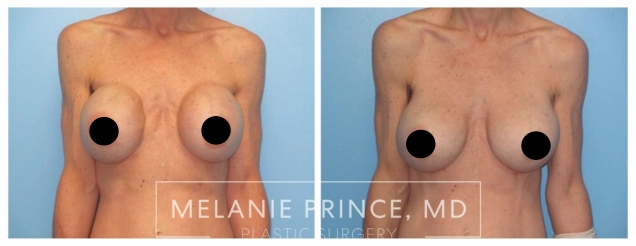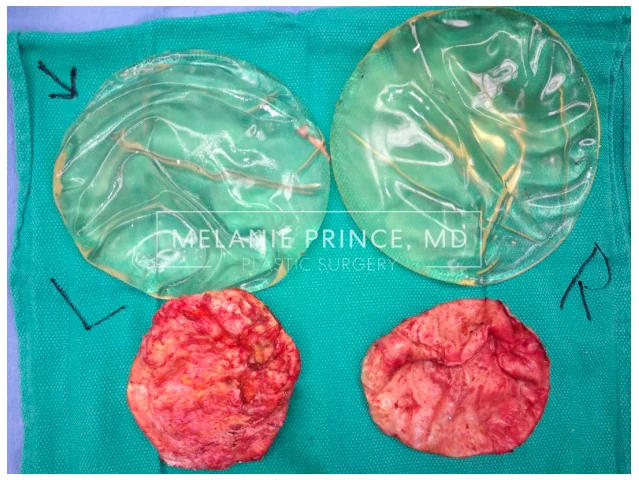
Capsular Contracture
Breast augmentation is one of the most common cosmetic procedures performed in the United States. Like any surgery, complications can occur after breast augmentation. Such complications include hematoma, seroma, implant rupture, or capsular contracture. Our body’s normal immune response develops scar tissue (capsule) around the breast implant and is part of the healing process. This capsule is what helps keep the breast implant in place after surgery. However, sometimes the body can produce a thicker “capsule”, or scar tissue around the implant, resulting in a capsular contracture.
What is a capsular contracture? A capsular contracture is when the scar tissue formed around a breast implant becomes very hard and contracts. A capsular contracture can cause aesthetic deformity and pain. It can be unclear what causes a capsular contracture; however, capsular contracture is common after an infection, hematoma (blood clots), or seroma (fluid buildup). It is important to follow activity restrictions after breast augmentation surgery to prevent seromas or hematomas from occurring. Capsular contracture can also occur from repeated nicotine use or second-hand exposure.

A capsular contracture is rated by a grading system, the Baker Grading System:
Grade I – soft, no visible deformity, no palpable deformity
Grade II – palpable deformity, no visible deformity
Grade III – palpable and visible deformity, no pain
Grade IV – palpable and visible deformity with associated pain
Treatment for capsular contracture includes medical and/or surgical interventions. Medical treatment can include Singulair, antibiotics, and Vitamin E daily. Medical treatments help lessen the progression of a capsular contracture but cannot reverse it. Surgical intervention is indicated for Baker Grades III and IV capsular contractures. The surgical procedure usually involves removal of the implant with or without replacement of the implant. A capsulotomy (partial capsule removal) or capsulectomy (full capsule removal) may be performed. Additionally, tissue mesh, or acellular dermal matrix, may be recommended to prevent recurrent capsular contractures. To prevent any reoccurrence of a capsular contracture, permanent implant removal would need to be performed.
The best ways to prevent capsular contractures from occurring are following your surgeons’ postoperative instructions (activity restrictions, medications), attending scheduled follow up appointments with your surgeon, and avoiding nicotine. If at any time one notices a change in their breast’s appearance, contacting their provider’s office immediately is recommended.